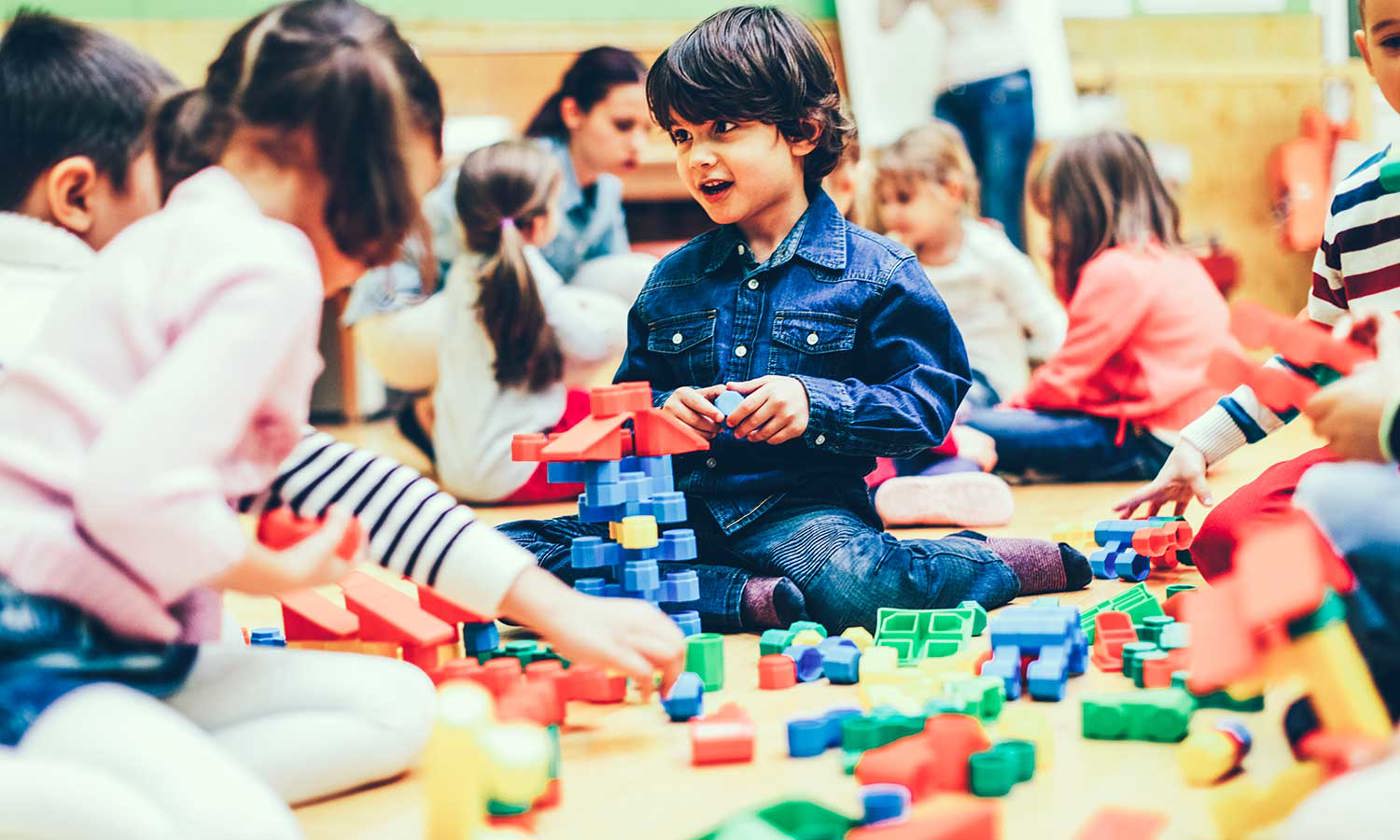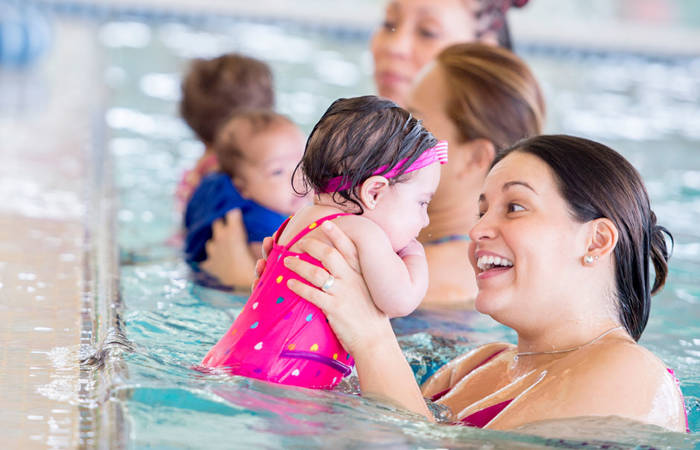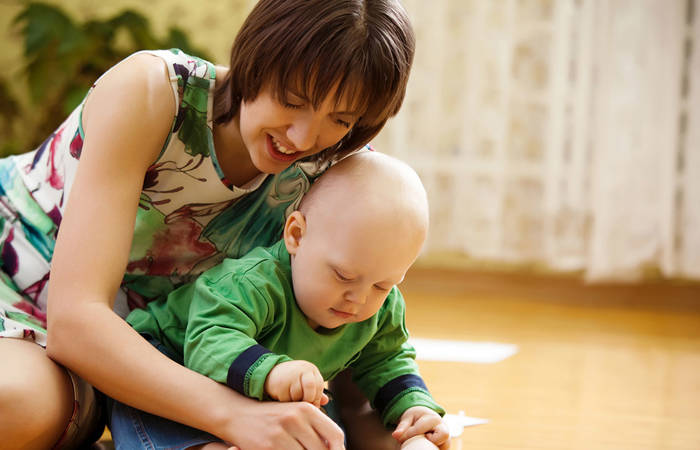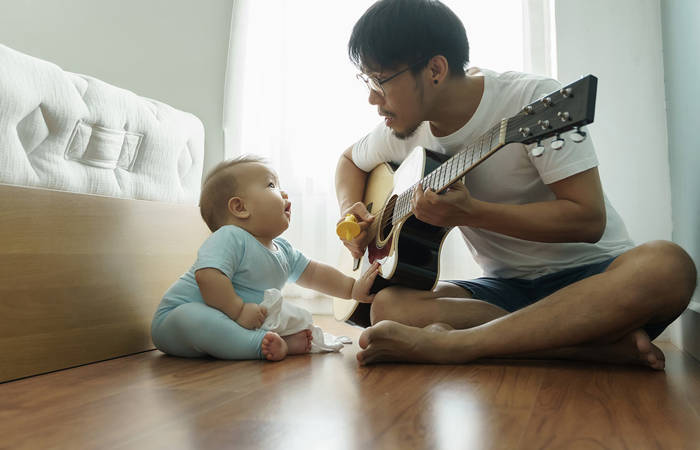Like what you see?
Sign up to receive more free parenting advice.
Thank you for subscribing to our newsletter!
Child Development

Credit: iStock.com/vgajic
We’ve all experienced the challenge of listening and processing conversations in crowded or noisy places, but for some children, this is a struggle they are facing every day.
Auditory processing disorder (APD) affects about 3-5% of children and while the child has normal hearing they have a problem with the way their ears and brain work together to understand sound.
They most commonly have trouble understanding sounds in loud environments, in particular speech. This is because sufferers struggle to identify differences between syllables in words, which is worsened when background noise is added.Dr Ryan Harvey
Assistant Medical Director at House Call Doctor Dr Ryan Harvey (MBBS MHEcon) says in its simplest terms, APD is a disorder where children don’t hear the same way other children do because their ears and brain aren’t completely coordinated. There is usually an interference with how the brain recognises and interprets sounds.
“When in a quiet room, children with APD can typically hear most sounds, mainly those made one at a time,” Dr Harvey says.
“They most commonly have trouble understanding sounds in loud environments, in particular speech. This is because sufferers struggle to identify differences between syllables in words, which is worsened when background noise is added.”
Dr Harvey says the cause of APD is unknown and because it’s unknown there’s no way to prevent the disorder.
“It’s been debated that the disorder could be heredity or be a result of environmental factors – but this is still uncertain. Factors such as premature birth, low birth weight, ear infections and head trauma are all potential links to the disorder.
“There are also speculated controllable factors which may lead to the development of APD.
“Though the auditory pathways aren’t fully developed until adolescence, the auditory system is developed at birth – this is why experts believe some causes may occur before or during a child’s birth.”
Diagnosing and treating children with auditory processing disorder early is important so that as they begin primary school, their reading and literacy skills are not already lower than their peers.
As the children attend early learning centre environments or primary school classrooms, it can become more difficult for them to concentrate or follow instructions.
Dr Harvey says it’s quite difficult to diagnose APD at an early age because some auditory skills aren’t developed until a child reaches seven or eight years of age.
He says an audiologist can then perform advanced listening tests on a child, including attaching electrodes to their ears to reveal how the brain responds to sound.
“Before the age of five, parents can look at having a speech pathologist perform tests to measure listening comprehension skills or cognitive abilities – but keep in mind an audiologist is only able to diagnose APD at a later age,” Dr Harvey says.
Dr Harvey says there are many signs of APD that some parents may overlook. These can include:
- Children often asking “what/pardon?” after a person has spoken.
- Difficulty hearing in loud environments.
- Mishearing words or sounds that may sound similar, for example fourteen and forty.
- Distracted behaviour.
- Focusing on background noise rather than the person they are talking with.
- Difficulty remembering details of a conversation or something they’ve read.
Some of the symptoms of APD may overlap with other disorders. ADHD for example also has signs including difficulty focusing and processing sounds, behavioural problems and trouble paying attention to information presented orally.
“With this being said, the overlapping symptoms can usually be differentiated by particular traits in a child’s behaviour,” Dr Harvey says.
Dr Harvey says that according to the National Institute on Deafness and Other Communication Disorders (https://www.nidcd.nih.gov/), the main differences include:
- Children with ADHD show behaviour of being distracted, hyperactivity and impulsivity, while those with APD may seem distracted in loud environments but don’t have trouble focusing in quieter spaces.
- Some children with APD are very sensitive to some sounds and may even experience pain, while kids with ADHD might only have difficulty listening, understanding or remembering information.
There is technology available to assist children with ADP, but Dr Harvey says these are recommended after a child has been diagnosed with the disorder, at the age of seven or eight.
“These assistive tools include personal listening devices, sound field systems and noise-cancelling headphones,” he says.
“As well as this, there are available therapies such as speech therapy which can help children with APD by making sounds clearer, improving perception of sounds, developing listening skills and using language appropriately.”
Dr Harvey’s advice for parents
If you’re worried about your child’s hearing, visit a doctor who may refer you to an audiologist if necessary.
If your child does have auditory processing disorder, there are some tips you can do at home to increase their ability to listen effectively. These include:
- Don’t start a conversation with your child while they’re in another room, while they’re watching television or there is background noise.
- Make sure your child is listening before starting a conversation.
- Urge your child to ask you to repeat something you’ve said which they didn’t understand or misheard
- Speak slowly while using simple sentences



